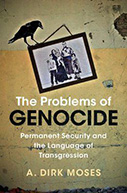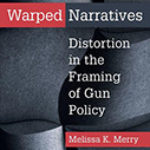The Problems Of Genocide – Permanent Security And The Language Of Transgression

Author: A. Dirk Moses
Publisher: Cambridge, UK; New York: Cambridge University Press, 598p.
Reviewer: David O. Friedrichs | September 2021
The issues addressed in The Problems of Genocide are monumentally consequential. The book has been some fifteen years in the making, with the author side-tracked into other projects during this period, including as co-editor of anthologies on decolonization and human rights and genocide in Greece, and as editor of the Journal of Genocide Research. The author, a native of Australia, is presently Frank Porter Graham Distinguished Professor of Global Human Rights History at the University of North Carolina at Chapel Hill. In the present book he draws upon a long-standing immersion in the literature on genocide and on other crimes of states, including crimes of war. While the literature on these topics is massive, and precludes a truly comprehensive survey, the author’s command of a daunting body of work is quite mind-boggling. A. Dirk Moses has clearly thought long and hard about some huge challenges in human history, challenges with fundamental implications for students of criminal law, criminal justice, and crime.
The core thesis of this book is stated clearly at the outset: the concept of genocide as the “crime of crimes” produces a hierarchy of mass death that organizes and distorts thinking about civilian destruction, and blinds us to the immense harm of other forms of mass killing of civilians, including the bombing of cities and drone strikes. It would be far more preferable, in Moses’ view, to recognize and privilege attention to the crimes of “permanent security.” Altogether, the enduring differentiation between combatants and non-combatants, in relation to civilian deaths, is problematic in various ways. In recent world history, the killing of civilians in relation to war has become increasingly the norm. For instance, in the Vietnam War the USA dropped five times the bomb tonnage it dropped during World War II, resulting in three million deaths, mostly of civilians. In the recent global war on terror, Western forces have killed far more civilians than have been killed by Daesh (Isis). Altogether, since World War II, genocide as fueled by “race hatred” and directed toward the destruction of a particular group of people, has been highlighted for “shocking the conscience of mankind” in a way not true of on-going politically-motivated violence carried out within the context of a military endeavor. Moses (p. 25) poses the question: “Clearly, the deliberate destruction of a people is a terrible crime; but why is it worse than the foreseeable destruction of many people?” The Holocaust inspired the introduction and promotion of the concept of genocide, and remains the highest profile case of such crime. But for more than a century, aerial bombings that have killed massive numbers of people – and continue to do so – have been the focus of far less public concern and opprobrium. And if rabid hatred of the Jewish people is most typically highlighted in accounts of the Holocaust it can alternatively be viewed as driven first and foremost by a pursuit of “permanent security” by Hitler and the Nazi state. Indeed, the term “permanent security” is attributed to Otto Ohlendorf, an SS commander who after World War II invoked this term to justify the mass killing of Jews in “the East” by Nazi Einsatzgruppen squads.
In the twelve chapters following his Introduction, Moses in the course of over five hundred pages offers up a virtually exhaustive scholarly case in support of his core thesis. The first two chapters explore “the language of transgression” from the 1500s through the 1930s, or from the European conquests of the Americas to the lead-up to World War II. In a third chapter, Moses discusses Raphael Lemkin, the Jewish Polish refugee credited with having first introduced and promoted the concept of genocide. In fact, Lemkin’s work is addressed, often somewhat critically, throughout the book. Two further chapters of this section explore the “invention” of genocide in relation to many different types of civilian destruction.
A second part of the book is devoted to exploring a range of historical cases of the pursuit of permanent security, beginning with the establishment of “empires” and with settler colonialism. The Nazi Empire is addressed as a specific case of “illiberal permanent security.” But the remaining two chapters focus upon the way “permanent security” has been relentlessly pursued following the defeat of Nazi Germany, into the present, in relation to the foundation of a “postwar order,” with special attention to population “transfers” in Europe and Palestine – in conjunction with the founding of Israel – and throughout South Asia.
The third and final part of Moses’ book is devoted to in-depth explorations of the language of transgression in relation to the pursuit of permanent security, with special attention to “Holocaust memory” in relation to this. In addition to the legacy of Lemkin, the controversial contributions of Hannah Arendt, among many others, are discussed. The emergence of “genocide studies” – with the Holocaust as the principal but far from exclusive focus of such studies – and the privileging of “exemplary victims” in relation to genocide, with an implicit downgrading of victims of “political” violence, is deconstructed. For Moses, the urgent need to outlaw the pursuit of permanent security in its present and prospective manifestations, is a fundamental task for our times.
It is impossible, within the context of a relatively brief book review, to do justice to the extraordinary richness and depth of Moses’ treatment of the issues identified in the above paragraphs, complete with extensive footnotes relating to the vast relevant literature. As it happens, while this review was being written, President Joseph Biden announced his recognition of the mass killing of Armenians by the Turks during the World War I era as a genocide, and his intention to fully withdraw American troops from the longest American war, in Afghanistan, by the twentieth anniversary of 9/11. Would the first decision, in angering the Turkish government, threaten the well-being and lives of the Kurds, among others? Would the second decision lead to a horrendous humanitarian crisis in Afghanistan, with the Taliban returning to power? These are just two of the imponderables that arise in relation to genocide and the pursuit of permanent security, and in relation also to issues of universal human rights and criteria for humanitarian intervention that have been among the central preoccupations of international politics since World War II. Altogether, Moses surely provides readers of his book with immensely thought-provoking historical and philosophical analyses on such extraordinarily consequential issues. For the author of this review, however, one central concern remains: it is far more feasible to mobilize a citizenry against a call for a genocidal campaign than to mobilize a citizenry against a call for a domestic or international campaign in pursuit of “permanent security.” Indeed, the presidency of Trump and other autocratic leaders across the globe, and the resurgence of right-wing politics demonstrates the huge, on-going appeal of “permanent security” in relation to immigration on the one hand, and the pursuit of broader domestic “rights” for minorities on the other hand. And it is obviously far more difficult to criminalize actions undertaken by states – even when they cause devastating harm to citizen populations – than to criminalize the actions of those engaged in conventional forms of harm. The world’s single most powerful nation succeeded in blocking initiatives calling for U.S. endorsement of the International Criminal Court, due precisely to a concern that it could be directed toward actions undertaken by U.S. military personnel.
Going forward, it seems quite certain that the effects of climate change, the desperation fueled by failed states, and shifting demographic trends, among other developments, will contribute to heightened calls for state actions that are regarded as contributing to enhanced “security” for established constituencies. The Global South challenging the hegemony of the Global North, including the historical and on-going dominance of the latter on the frameworks and narratives whereby the world is understood and interpreted, is quite certain to be a central theme of the balance of the twenty-first century, with a broad impact on everything from permanent security initiatives to the characterization of the enduring problem of crime.
Altogether, The Problems of Genocide can be strongly recommended to readers of this journal who have an interest in the macro-issues relating to criminal law and criminal justice, broadly conceived. The author of this review is a criminologist with a long-standing interest in white collar crime and crimes of states, and in fact co-taught a course on the Holocaust for more than twenty years. And as his own work has focused especially on definitional, conceptual and typological issues, and the “mapping” of a terrain of intellectual inquiry, he was certainly predisposed to find Moses’ claims on behalf of the significance of such issues wholly persuasive. The “problems of genocide” has its parallel for criminologists in “the problems of crime.” The way in which the notion of crime has been enshrined within the criminal law, has been conceived of in popular culture, and has been studied by criminologists, has also had a hugely distorting effect of privileging forms of harm disproportionately engaged in by the poor and powerless, and blinding us to the typically far more consequential forms of harm engaged in by the rich and powerful (Barak 2015; Rothe and Kauzlarich 2016). Famously, within criminology, Edwin H. Sutherland in 1939, in his American Sociological Society presidential address, introduced the concept of “white collar crime,” to direct the attention of criminologists to the crimes of respectable middle and upper class members of society, within the context of legitimate occupations (Friedrichs, Schoultz and Jordanoska 2018). Sutherland’s 1949 book on white collar crime, published the year before this death, specifically focused upon crimes of corporations. Although from the 1970s on white collar crime generally, and corporate crime specifically, has been the focus of expanding criminological attention, it remains the case that more than eighty years after Sutherland introduced his challenge to the field, criminology is still very disproportionally focused upon conventional (or “street”) crime and its control. Sutherland himself, although working on his white collar crime project during the very decade when the crimes of the Nazis – incorporating the Holocaust – were taking place along with the post-war Nuremberg trials, did not address such forms of state-directed crime. Some fifty years after Sutherland’s presidential address, in another presidential address, William J. Chambliss promoted the concept of “state-organized crime,” fostering the growth of a criminology of crimes of states (Chambliss, Michalowski and Kramer 2010). Some criminologists in recent years – for example, the late Nicole Rafter (2016) in The Crime of All Crimes: Toward a Criminology of Genocide – have specifically addressed genocide. But such initiatives – along with a more broadly focused criminology of crimes of the powerful – are marginal to the criminological “mainstream.” Some criminologists have – out of frustration with this circumstance – called for a shift from attention to “crime” to attention to “harm,” and the replacement of criminology with zemiology, or the study of harm (e.g., Hillyard, Pantazis, Tombs and Gordon 2004). But there are a range of reasons – from the far greater complexity of crimes of the powerful to the practical incentives for privileging crimes of the powerless – why such calls confront many forms of resistance. And so it is with the case made by Moses. An endeavor that seeks to criminalize crimes of “permanent security” takes on both the immensely powerful entities that promote such crime, as well as a broad swath of the citizenry that has been socialized to view military “permanent security” initiatives in positive terms.
All those who choose to engage with the issues addressed in The Problems of Genocide are well-advised to adopt a measure of humility. At the end of the day, the optimal policies and practices to be adopted in response to “genocidal” and “permanent security” initiatives have complex dimensions. Ideally, there are ways to calculate the likelihood of different identifiable forms of harm in relation to different policy choices, and to effectively promote those that lead to the least harmful outcomes.
References
Barak, G. (Ed.) (2015) The Routledge International Handbook of the Crimes of the Powerful. London and New York: Routledge.
Chambliss, W. J., Michalowski, R., and Kramer, R. C. (Eds.) (2010). State Crime in the Global Age. Devon, UK: Willan.
Friedrichs, D. O., Schoultz, I., and Jordanoska, A. (2018) Edwin H. Sutherland. London and New York: Routledge.
Hillyard, P., Pantazis, C., Tombs, S., and Gordon, D. (Eds.) (2004) Beyond Criminology: Taking Harm Seriously. London: Pluto Press.
Rafter, N. (2016) The Crime of All Crimes: A Criminology of Genocide. New York: New York University Press.
Rothe, D. I., and Kauzlarich, D. (2016) Crimes of the Powerful: An Introduction. New York: Routledge.
David O. Friedrichs is the editor of State Crime – Volumes I & II (Ashgate, 1998)


